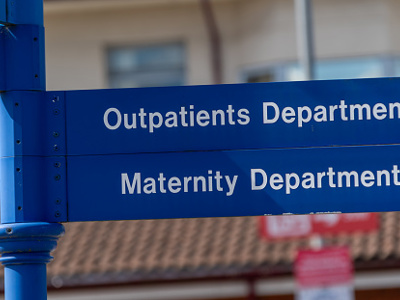Our services in Leeds
Injury Claims
Partner Bethany Sanders leads the personal injury team in Leeds. The team specialises in serious injury claims, including brain and spinal injury, amputee claims and fatal accidents.
Bethany has extensive experience of representing clients whose injuries arise from road traffic collisions, such as pedestrians and cyclists, as well as accidents at work and public/occupiers liability claims. She only acts for claimants and has represented many individuals who have sustained life-changing injuries, working with them to ensure rehabilitation is in place as soon as possible.
"Leigh Day's Bethany Sanders and her team were incredibly supportive and professional with my civil claim following my husband's death on the road. Their expertise was second to none. They provided guidance and advice through a very tough process and some of the darkest days of my life. They achieved the outcome they wanted for me and my family and for that we will all be eternally grateful."
Wendy, via Trustpilot
Senior Associate Solicitor Nathaniel Martindale handles cases on behalf of seriously injured clients who have been injured whilst abroad and also for foreign nationals who have been seriously injured in the UK.
Medical Negligence claims
Head of medical negligence and partner Suzanne White leads the team in Leeds alongside partner Matthew Westlake. The team specialises in a wide range of complex claims, including obstetric, spinal, orthopaedic, ophthalmic and brain injuries.
The team also advises on claims as a result of delay in diagnosis of cancer and other serious illnesses, and is experienced in providing representation to families at inquests where loved ones have died as a result of negligent medical care.
"Leigh Day helped me so much through my journey with my case, always there either by phone or email, very attentive with updates & keeping me in the loop with everything, they worked so hard & got me the best outcome, they are a company that really care for their clients & give the best support & advice. I’m forever grateful to Matthew Westlake & all the team."
Elaine Morrison, via Trustpilot
Group Litigation
Our group litigation team, led in Leeds by partner Sarah Moore, specialises in representing large groups of people affected by corporate wrongdoing, unsafe products, and environmental harm. Sarah has acted in some of the UK’s most high-profile group actions, helping communities both in the UK and abroad to secure justice against corporations and governments.
Life after Amputation: Kieran's story
Having served in the army, Kieran started a new career in the railway engineering. Due to completely avoidable incident, he lost his leg. Leigh Day supported Kieran after his life-changing injury, using the legal process to ensure he got the prosthetic, housing, equipment and care he needed.
View our regional news

Meeting to be held over sewage pollution concerns in Windermere
A community meeting will take place on Wednesday 26 November 2025 to explain the potential for legal action in response to sewage pollution affecting Windermere.

Tackling Pollution in Windermere: A Community Call to Action
Leigh Day invites residents and businesses in the Windermere area to a community meeting to share their experiences and concerns about the growing issue of sewage pollution in England’s largest lake.

Medical negligence lawyer welcomes independent inquiry into maternity failings at Leeds Teaching Hospitals NHS Trust
Leigh Day’s Head of Medical Negligence Suzanne White has welcomed the announcement of an independent inquiry into maternity services at Leeds Teaching Hospitals NHS Trust following a series of critical inspections and regulatory concerns.
WHAT THE DIRECTORIES SAYS
They have taken their place at the top table of the Leeds Complex personal Injury market exceptionally quickly.
Legal 500, 2026
WHAT THE DIRECTORIES SAYS
The Leigh Day team in Leeds is comprised of experienced personal injury solicitors who consistently strive to achieve the best rehabilitation and legal outcome for their clients.
Legal 500, 2026
WHAT THE DIRECTORIES SAYS
The team at Leigh Day in the Leeds office are excellent.
Legal 500, 2026
What our client say
Some people see law as heartless and cold, But all that we saw are hearts made of gold! The team at Leigh Day gave us hope in the dark, On days when our life really did feel quite stark. We thought we were powerless, going up against giants, So we called in Leigh Day, and soon became clients, And then we felt strong even on the bad days, As we knew we had backing all through the tough phase. So this is a thank you, for you don’t understand, Just how you have helped us beyond toxic land, Your reach did go far as you gave us advice, We turned into lions, not scared little mice! There really is heart in the world made of law, As the underdogs rise when YOU know the score, So thank you for being there in OUR darkest days, You’ve helped change our lives and for that there’s no phrase!
A poem dedicated to Sarah Moore, Charlotte Armstrong, Harry Wilkinson
The Leigh Day Leeds office opened in 2022 to extend the firm’s renowned expertise in handling claimant personal injury and medical negligence work in the North East. Our Leeds team handles a range of clinical negligence and serious injury claims for clients based in Yorkshire, Humberside and the North East of England.
Ready to talk? Call today on 0113 323 0651
Get help today
Fill in our short form and we will call you back, or call us on 0113 323 0651
What our clients say
Accreditations



